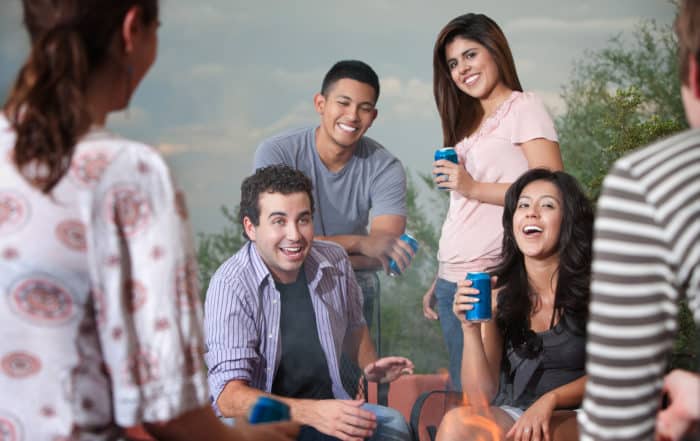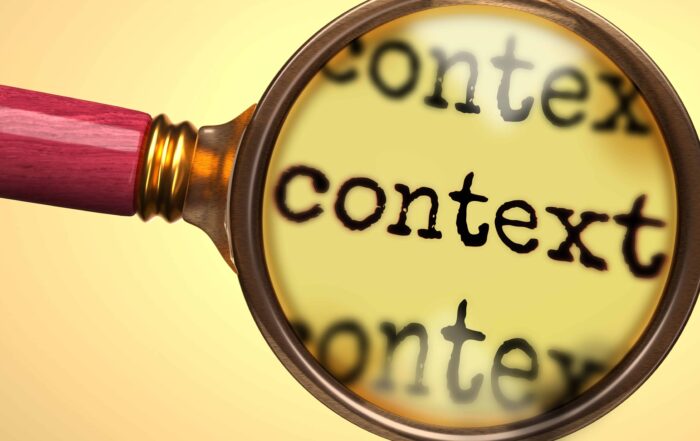Doctors Liam Cross & Gray Atherton discuss research suggesting that board game skills may be a lifelong bridge to engaging with peers. They provide context for the intersection of autism and board games, highlighting the parallels between cognitive differences in autism and modern board game characteristics. The speakers outline recent studies on the prevalence of autism among board gamers, what autistic board gamers get out of the hobby, and the potential long-term effects of board game play. Atherton and Cross assert the ability of board games to foster social and communication development in autism and discuss creating a formal intervention strategy before the Q&A.
Handouts are online HERE
In this webinar:
1:50 – Background on autism
4:15 – Why board games?
7:13 – Why board games and autism?
8:45 – Study 1: Prevalence of autism among board gamers & differences across groups
12:55 – Study 2: What do autistic board gamers get out of this hobby
18:45 – Study 3: What do autistic board gaming newbies think about the hobby
21:45 – Study 4: Investigation into long-term effects
27:35 – Study 5: Qualitative investigation of experiences playing Dungeons & Dragons
30:33 – Conclusions
32:20 – Overlap between autism and gaming
34:45 – Therapeutic application of Dixit
37:45– Ongoing interview-based project
39:00 – Q&A
Autism and board games
Atherton describes common characteristics of autism, including social and communication challenges, propensity for systems and logic, special interests, and difficulties with theory of mind, or thinking how other people think (1:50). She highlights that autism exists on a spectrum and notes clinical thresholds in the general population (3:45). Atherton explains that modern board games require more theory of mind than older ones as they have deeper systems, more player interaction, and stronger narratives (4:15). Modern games, she continues, are incredible tools for learning sportsmanship, communication, and cognition via a healthy sense of competition, rules to understand and discuss, and strategy progression across time (5:15).
Studies on board game experiences in autism
Cross discusses his observation of a high number of autistic people at board game events and considers how this contradicts many autism myths about social skills and theory of mind (7:13). He notes that there is very little research in this area and underscores its potential for learning and interventions (8:00). Atherton and Cross present six studies on autistic board game experiences:
Study 1: Exploring autism prevalence amongst board gamers & experiential differences across groups
Cross outlines methods for a survey study of board gamers’ motivations, preferences, and demographics (8:45). Rates of mental health were within the global average, aside from elevations in autism (7%) and anxiety (12%), which commonly co-occurred. Autistic traits were also significant in this group compared to the general population (9:45). These data, Cross discerns, show that a high percentage of board gamers are autistic, suggesting that difficulty with theory of mind may be less common in autism than generally assumed.
Autistic participants reported strategizing as the primary motivator for playing games, while neurotypical respondents cited social interaction (10:55). Atherton asserts that, while motivations differ, board gaming provides a space for people to enjoy and learn together, which is critical in effective interventions (12:00).
Study 2: What autistic board gamers get out of the hobby
Atherton discusses methods and analysis for a study on what autistic board gamers enjoy about the hobby. The speakers outline five significant themes from the study, presenting a participant quote for each (12:55). Respondents reported that the systems, rules, and logic of the games are stimulating and comforting and noted the ability to be creative with strategy as games progress (14:20). Themed games that align with someone’s special interest were described as a great escape from everyday life. Games were also referenced as a social lubricant because everyone’s attention is on the game (not any one person), which also serves as a topic of conversation that people can always come back to (16:08). Games that involved deception or bluffing received mixed feedback. The speakers explain that such games require a lot of theory of mind, so many would assume that autistic people wouldn’t like or be good at them. But this was not the case (18:15).
Study 3: What autistic board game newbies think of the hobby
The study included 30 autism clubs across the UK, where participants played games and then took part in focus groups (18:45). Similar to the previous study, participants noted how board games could forge social relationships and build social and cognitive skills that are applicable across settings (20:00).
Study 4: Long-term effects of board game playing
Atherton and Cross played games once a week for one year with eleven school children and fourteen adults in a care center, some of whom were nonverbal (21:45). After one year, focus groups were conducted with participants and care staff, from which three central themes emerged. Many adult participants noted that weekly games gave them a reason to sit together and create friendships, which they wouldn’t have done before. Similarly, staff reported a learning curve in understanding that their patients are capable of doing much more independently than they previously thought (23:55). The speakers note that child participants not only learned and adapted to new rules and systems but were able to transfer acquired skills across different games and situations (26:00). Many children also viewed the gaming as play instead of learning. These findings, the speakers posit, show promise for the use of board games in various interventions across ages.
Study 5: Dungeons and Dragons campaign experiences
The presenters outline a study that follows two groups of autistic adults through eight sessions of Dungeons and Dragons (D&D), followed by an interview about their experiences (27:35). Many participants referenced the game as a relief from the daily struggles of social life and an opportunity to speak or act more effectively than usual. Some reported instances of bleed and emotional investment in their D&D characters within their “real lives” (28:30). Cross explains how table-top role-playing games (TTRPG) can allow individuals to recognize parts of themselves or find inspiration in their characters. This distinction, Cross asserts, means that TTRPGs present an exciting avenue for future interventions (30:00).
Conclusions
Atherton highlights how board games support the development of social cognition and theory of mind, especially for autistic individuals (30:33). Autisitc gamers describe board games as a social lubricant that helps reduce social anxiety through a defined system of interaction (31:40). Therefore, the speakers assert, board games present a promising form of intervention. This is especially true for adults with autism who gain friendships and social interaction from the hobby (32:13). The speakers reiterate the big picture overlaps between autism and gaming, underscoring the parallels between board game characteristics and cognitive differences in autism (32:20). They note the wide variety of board game themes and suggest involving gameplay in challenging situations for autistic people as an avenue for skill-building based on personal interests (34:00). Atherton briefly describes the clue-giving game Dixit, where the aim is to get others, but not everyone, to guess your card with a short clue (34:45). She praises the versatility of the game and describes cards that different people chose to represent autism (36:00).
The presenters outline their ongoing interview-based (online) project with parents who have played board games with their autistic children. The study aims to capture their experiences in a way that may lead to the creation of a formal intervention (37:45). If you would like to participate in the study, please contact Dr. Gray Atherton at [email protected]. Atherton and Cross provide thanks and acknowledgments before the Q&A (39:00).
Originally published on March 20, 2024
The speakers:
 Gray Atherton, PhD, has a BSc in Child Development from Vanderbilt University, a Master’s in Counselling from University of Houston, and a Ph.D. in Educational Psychology and Individual Differences from University of Houston. She has previously lectured at University of Houston and the University of Wolverhampton. Prior to entering academia, Gray was a counselor for adolescents with neurodevelopmental conditions. “I am interested in understanding how people with autism spectrum condition see the social world. Specifically, I explore individual differences in social processing and how these differences often found in people with autism also exist in the general population. I also investigate anthropomorphism, or seeing the human in the non-human, and how this relates to social processing in autism. To investigate this, I am developing virtual reality techniques that allow for anthropomorphic experiences. My other research interest lies more broadly in embodied social processing. I am particularly interested in how movement can affect the way we see ourselves and our social partners, and how this can be used to understand special populations.”
Gray Atherton, PhD, has a BSc in Child Development from Vanderbilt University, a Master’s in Counselling from University of Houston, and a Ph.D. in Educational Psychology and Individual Differences from University of Houston. She has previously lectured at University of Houston and the University of Wolverhampton. Prior to entering academia, Gray was a counselor for adolescents with neurodevelopmental conditions. “I am interested in understanding how people with autism spectrum condition see the social world. Specifically, I explore individual differences in social processing and how these differences often found in people with autism also exist in the general population. I also investigate anthropomorphism, or seeing the human in the non-human, and how this relates to social processing in autism. To investigate this, I am developing virtual reality techniques that allow for anthropomorphic experiences. My other research interest lies more broadly in embodied social processing. I am particularly interested in how movement can affect the way we see ourselves and our social partners, and how this can be used to understand special populations.”
 Dr. Liam Cross “I have a BSc in Psychology from Lancaster University and a PhD in Psychology from Leeds Beckett University. My PhD focused on how and why engaging in Coordinated Rhythmic Movement affects interpersonal relations and group processes and relations. Basically how moving in coordinated ways (dancing, singing or even walking) fosters greater affiliation, cooperation & conformity towards our co-actors & changes in our social identity.” Dr. Cross’s research interests include whether the theory of mind deficits in those with ASD can be alleviated by changing the object of evaluation in these measures from human to cartoon and animal stimulus, and, most recently the overlap between tabletop games and autism.
Dr. Liam Cross “I have a BSc in Psychology from Lancaster University and a PhD in Psychology from Leeds Beckett University. My PhD focused on how and why engaging in Coordinated Rhythmic Movement affects interpersonal relations and group processes and relations. Basically how moving in coordinated ways (dancing, singing or even walking) fosters greater affiliation, cooperation & conformity towards our co-actors & changes in our social identity.” Dr. Cross’s research interests include whether the theory of mind deficits in those with ASD can be alleviated by changing the object of evaluation in these measures from human to cartoon and animal stimulus, and, most recently the overlap between tabletop games and autism.
Take the knowledge quiz
Can’t see the quiz below? Take it online HERE
Social Media and Neurodiversity
Free webinar at 1 p.m. Eastern time (US), Wednesday September 18, 2024 Learn research updates on evidence-based strategies to support adolescents and young adults develop social skills that encourage lasting friendships.
The Science of Making Friends for Autistic Youth: Lessons from the UCLA PEERS Program
Free webinar at 5 p.m. Eastern time (US), Wednesday August 28, 2024 Learn research updates on evidence-based strategies to support adolescents and young adults develop social skills that encourage lasting friendships.
Study finds that employees with autism are less likely to exhibit “bystander” effect
Employees with autism spectrum disorders (ASD) may contribute to businesses in a unique way because they are less likely than neurotypical individuals to exhibit the “bystander” effect, according to a new study.
Autistic adults show enhanced generosity toward strangers
Adults with autism spectrum disorders (ASD) tend to be more generous to strangers than their neurotypical peers are, according to new research. In the study, Paul Forbes and colleagues explored differences
Contextual clues can trip up individuals with ASD
Adolescents with autism spectrum disorders (ASD) may have difficulty understanding other people’s emotions because they do not use contextual clues, a new study suggests. The study, by Steven Stagg and colleagues, compared
Observers may incorrectly rate people with ASD as being less truthful
Adults with autism spectrum disorders (ASD) may be incorrectly perceived by other people as being deceptive and lacking credibility, according to a new study. Alliyza Lim and colleagues asked 30 individuals with







